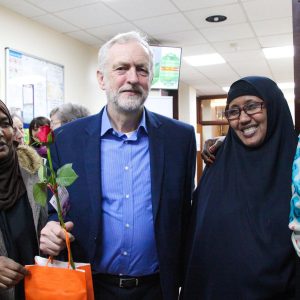By:,Sherzad MamSani
In the intricate landscape of global politics, the role of the Muslim Brotherhood has been a subject of intense scrutiny, debate, and concern. While this organization, founded in Egypt in 1928, has experienced periods of both power and persecution within its home region, its influence has transcended borders and continents.
One particularly disconcerting dimension of its reach is its ability to exploit the asylum systems in European democracies, utilizing a purported refuge for the vulnerable as a tool to advance its own agendas, including the support and propagation of terrorism.
The European asylum system is designed to provide sanctuary for those fleeing persecution, violence, or untenable circumstances. While this noble endeavor is deeply embedded in the democratic principles of the European Union, it is not immune to exploitation, manipulation, and abuse.
The Muslim Brotherhood has been accused of engaging in precisely this behavior, harnessing the asylum card to strengthen its pressure groups and further its objectives. This article delves into the disquieting strategies employed by the Muslim Brotherhood, focusing on how it exploits European democracy, loopholes in the asylum process, and the very principles of asylum to bolster its pressure groups, ultimately enabling and promoting terrorism. In doing so, it not only raises a compelling question about the resilience of democratic institutions but also offers a critical examination of the opinions of key politicians and writers who have voiced their concerns regarding this unsettling phenomenon.

Refugee Asylum and Extremist Ties: A Critical Examination
The global refugee crisis has prompted Western democracies to open their doors to those fleeing persecution, violence, and authoritarian regimes. The very foundation of asylum is grounded in empathy, human rights, and the promise of a better life for those escaping oppressive regimes in countries such as the Islamic Republic of Iran, Syria, Iraq, and Lebanon, along with their associated armed militias.
However, a concerning trend has emerged where some refugees, upon being granted asylum, engage in activities that appear to contradict their initial claims. This complex and pressing issue demands a thorough examination of its intricacies and a reevaluation of asylum requirements.
The Contradiction in Asylum Claims Refugees seeking asylum in Western nations often present harrowing stories of escaping persecution, violence, and terrorism in their home countries. Their narratives paint a bleak picture of the oppressive regimes and extremist groups they are fleeing, eliciting a compassionate response from the international community.
The Dilemma of Extremist Engagement
However, a dilemma arises when some of these refugees, having secured asylum, engage in activities that seemingly contradict the very reasons they sought refuge. Instead of distancing themselves from extremism, they actively support, and in some cases, participate in demonstrations on behalf of extremist and terrorist groups.
This includes showing allegiance to groups like Hamas, the Jihad group, and the governments of Iran, Turkey, Syria, and Iraq. This stark contrast between their asylum narratives and their actions raises legitimate questions about the legitimacy of their original claims.
Exploitation by Extremist and Terrorist Groups Extremist, pro-Iranian, and Turkish fascist groups have adroitly seized upon this contradiction, using refugees as pawns to exert pressure on European countries. They manipulate democratic principles, such as freedom of expression, to advance their agendas. In doing so, they not only compromise the safety and values of their host nations but also undermine the very principles upon which these democracies are built.

The Role of Extremist Leftist and Anarchist Groups
Adding to the complexity of this issue is the support provided by extremist leftist and anarchist groups within Europe to refugees with extremist ties. Their shared anti-Western and anti-establishment agendas create a concerning alliance that bolsters the aims of extremist elements within the refugee population.
Reevaluating Asylum Requirements In light of this multifaceted challenge, it is imperative for European countries and other Western democracies to conduct a comprehensive reevaluation of their asylum procedures. While it is crucial to uphold the principles of humanitarianism and provide refuge to those genuinely in need, it is equally essential to ensure that these values are not exploited for political or extremist purposes. The issue of refugees with extremist ties engaging in activities contrary to their asylum claims is a deeply intricate challenge that demands a careful and thoughtful response.
European nations must revisit and revise their asylum procedures to strike a balance between compassion and security, maintaining their commitment to humanitarian values while safeguarding against exploitation by extremist groups. Striking this balance is no small feat, but it is essential for Western democracies to uphold the principles of democracy, security, and the protection of genuine refugees while guarding against those who may seek to exploit the asylum system for ulterior motives.
This multifaceted challenge calls for a thorough examination, comprehensive reevaluation, and a firm commitment to protecting the values that Western democracies hold dear.
Opinions of Politicians and Writers:
* German Interior Minister, Horst Seehofer: Seehofer has publicly expressed his concerns about the potential abuse of the asylum system by extremist groups, including the Muslim Brotherhood. He has called for greater scrutiny and vigilance in processing asylum applications to prevent such exploitation.
* French Author and Islamism Expert, Gilles Kepel: Kepel’s extensive work on Islamism and radicalization has shed light on the Muslim Brotherhood’s global influence. He has warned of the organization’s ability to manipulate democratic processes in Western countries, including Europe, and has urged policymakers to address this issue.
* British Member of Parliament, Ayaan Hirsi Ali: Known for her advocacy on issues related to Islamism, Hirsi Ali has been a vocal critic of the Muslim Brotherhood’s activities in Europe. She argues that the group’s exploitation of the asylum system poses a serious threat to European security and democratic values.
* French Political Philosopher, Pascal Bruckner: Bruckner’s writings have explored the tensions between multiculturalism and democracy in Europe. He has questioned whether the open asylum policies of European democracies inadvertently provide a platform for extremist groups like the Muslim Brotherhood to thrive.
* Dutch Politician and European Parliament Member, Geert Wilders: Wilders, known for his strong stance against Islamism and immigration, has frequently raised alarms about the potential abuse of the asylum system by extremist groups like the Muslim Brotherhood. He argues for stricter immigration policies to mitigate this risk.
* Counterterrorism Expert, Lorenzo Vidino: Vidino’s research on radicalization and extremism has delved into the transnational activities of the Muslim Brotherhood in Europe. He emphasizes the need for European authorities to closely monitor the group’s activities, particularly its involvement in the asylum process.
* Italian Journalist and Author, Magdi Allam: Allam, who converted from Islam to Christianity, has been an outspoken critic of the Muslim Brotherhood’s actions in Europe. He has written extensively about the group’s influence and the potential consequences of their abuse of democratic systems.
* Swiss Federal Councillor, Karin Keller-Sutter: As the head of the Swiss Federal Department of Justice and Police, Keller-Sutter has highlighted the need for international cooperation to address the exploitation of asylum systems by groups with radical agendas like the Muslim Brotherhood.
* British Political Commentator and Author, Douglas Murray: Murray’s writings have explored the challenges posed by radical Islam in Europe. He has drawn attention to the vulnerabilities within democratic systems that allow organizations like the Muslim Brotherhood to advance their objectives.
* Human Rights Activist and Former Member of the European Parliament, Madi Sharma: Sharma’s advocacy for human rights has led her to raise concerns about the impact of extremist groups on vulnerable asylum seekers. She has called for measures to protect both refugees and the integrity of the asylum system from manipulation.
* Belgian Member of the European Parliament, Assita Kanko: Kanko, a strong advocate for women’s rights and a critic of political Islam, has warned against the dangers of extremist groups exploiting the asylum system. She calls for a comprehensive approach that addresses both security concerns and the protection of human rights.
* German Journalist and Author, Hamed Abdel-Samad: Abdel-Samad, a prominent critic of political Islam, has voiced concerns about the Muslim Brotherhood’s use of asylum to infiltrate European societies. He emphasizes the importance of a vigilant approach to protect democratic values.
* Swedish Security Policy Expert, Magnus Norell: Norell’s research on political Islam and security issues has drawn attention to the vulnerabilities in European asylum and immigration systems. He underscores the need for intelligence sharing and cooperation among European nations to counter the exploitation by extremist groups.
* Norwegian Politician and Former Minister of Immigration, Sylvi Listhaug: Listhaug has emphasized the importance of robust vetting processes for asylum seekers and refugees. She argues that tighter controls can prevent individuals associated with extremist groups from exploiting the system.
* American Scholar and Author, Samuel Tadros: Tadros, an expert on Middle Eastern politics and Islamism, has pointed to the Muslim Brotherhood’s global ambitions and their use of Western democratic systems. He calls for greater awareness and concerted action to address the threat.
* French Political Scientist, Olivier Roy: Roy’s research on political Islam in Europe has explored the complex relationship between extremist groups and asylum policies. He stresses that addressing this issue requires a nuanced understanding of the diverse motivations and dynamics involved. Treatment and Suggestions:
* Reevaluate Asylum Procedures:
European countries should conduct a comprehensive review of their asylum procedures to ensure that they strike a balance between humanitarian values and security. This review should aim to safeguard against exploitation by extremist groups.
* Enhanced Vetting: Implement more robust vetting processes for asylum seekers to verify their claims and affiliations. This may include closer scrutiny of their social media presence and activities after obtaining asylum.
* De-radicalization Programs: Develop programs and initiatives to counter extremist ideologies and promote integration among refugees, emphasizing the values of democracy and tolerance.
* Increased Surveillance: Maintain vigilance on the activities of asylum recipients, especially those with potential extremist ties, to ensure they do not engage in actions that threaten national security or the values of their host countries.
Complete Results with Important Points:
The global refugee crisis has led to Western democracies offering asylum to those fleeing persecution, violence, and oppressive regimes in countries such as the Islamic Republic of Iran, Syria, Iraq, and Lebanon. However, a concerning trend has emerged where some refugees, upon being granted asylum, engage in activities that appear to contradict their original claims.
* Contradiction in Asylum Claims: Refugees often present compelling narratives of escaping persecution, violence, and terrorism in their home countries, prompting a compassionate response.
* Dilemma of Extremist Engagement: Some refugees, after securing asylum, actively support or participate in demonstrations on behalf of extremist and terrorist groups. This raises questions about the legitimacy of their initial claims.
* Exploitation by Extremist Groups: Extremist, pro-Iranian, and Turkish fascist groups exploit this contradiction to exert pressure on European countries. They manipulate democratic principles, compromising the safety and values of their host nations.
* Role of Extremist Leftist and Anarchist Groups: Extremist leftist and anarchist groups within Europe support refugees with extremist ties, creating a concerning alliance that bolsters the aims of extremist elements.
* Reevaluating Asylum Requirements:
European nations must revisit and revise their asylum procedures to strike a balance between compassion and security, maintaining their commitment to humanitarian values while safeguarding against exploitation by extremist groups. In summary, addressing the issue of refugees with extremist ties engaging in activities contrary to their asylum claims requires reevaluating asylum procedures, enhanced vetting, de-radicalization programs, and increased surveillance. Balancing humanitarian values with national security is the key to addressing this complex challenge. The issue of exploiting asylum and European democracy by groups like the Muslim Brotherhood to bolster pressure groups and promote terrorism is a complex and concerning matter that warrants a deep political critique. It reflects the intricate intersection of democratic values, national security, and humanitarian principles. The primary concern is that the very asylum systems designed to offer refuge to those fleeing persecution can be manipulated to serve the interests of extremist organizations.

The Muslim Brotherhood, along with similar groups, has demonstrated a remarkable ability to exploit the vulnerabilities within Western democracies, particularly the principles of freedom of expression and association, to advance its agendas. This exploitation not only compromises the integrity of the asylum process but also poses a significant security risk. European countries, as well as other Western democracies, must confront this challenge with a sense of urgency and resolve. At the heart of this matter lies the need to strike a delicate balance between humanitarianism and security.
While it is paramount to uphold the values of empathy and compassion by offering refuge to those genuinely in need, it is equally essential to ensure that these values are not abused to further extremist objectives. This issue calls for a nuanced approach that considers both the individual rights of refugees and the collective security of the host nation. Political leaders and policymakers must engage in thorough deliberation on the asylum procedures, vetting processes, and counter-radicalization efforts to safeguard against manipulation by extremist groups. In conclusion, the challenge of extremist groups exploiting the asylum system poses a critical test for European democracies and their commitment to their foundational values.

A deep political critique reveals that addressing this challenge requires a comprehensive reevaluation of asylum procedures and a firm commitment to protecting both human rights and national security. It calls for the alignment of democratic principles with the imperative to safeguard against those who seek to exploit these systems for ulterior motives. The outcome will be a defining one, not just for the countries directly affected, but for the broader discourse on the interaction of asylum, democracy, and counterterrorism in the contemporary world.
Sources:
1. Radical, Religious, and Violent: The New Economics of Terrorism” by Eli Berman
2. The Age of Jihad: Islamic State and the Great War for the Middle East” by Patrick Cockburn
3. Terror, Security, and Money: Balancing the Risks, Benefits, and Costs of Homeland Security” by John Mueller and Mark G. Stewart
4. The Challenge of Political Islam: Non-Muslims and the Egyptian State” by Rachel M. Scott
5. Islamism and Democracy in Indonesia: Piety and Pragmatism” by Jeremy Menchik
6. The Muslim Brotherhood in Europe: Promoting Fundamental Values or Ideology?” by Orla Lynskey
7. Refugees and asylum seekers in the European Union: A review from an equality and non-discrimination perspective” by European Union Agency for Fundamental Rights (FRA) 8. The Refugee Crisis in the EU: Democratic Challenge and EU Institutional Response” by Zdzisław Jankowski.
